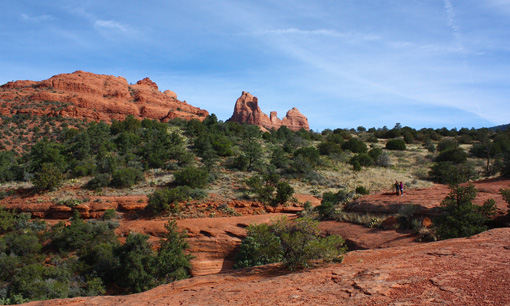
The rural Southwest feels vast and empty. Driving from Los Angeles to New Mexico, my wife Susan and I saw sweeping landscapes of alluvial fans and sheer cliffs, and mesas that stretched as far as we could see. Just the idea that people carved out a way of life on these lands left us in awe of our ancestors and, before them – centuries before them, millennia even – the first people who lived here.
People still live on this arid earthscape. They populate the small towns along the railroad tracks. They dwell in pueblos at the tops of mesas. They survive tucked into corners of cliff sides and in the bottomlands of rivers. Driving through such rugged beauty made us aware of the power of nature and the relative powerlessness of human beings in that kind of environment.
For tens of thousands of years the whim of the natural world determined the lives of human beings. When it got hot, they sweltered. When it snowed, they froze. When it rained, they grew crops and ate. When it was dry, they ate what they could – or left their homes and villages and headed somewhere else.
Then about a century and a half ago, that seemingly eternal pattern began to change. Human societies developed the capacity to direct Nature. We created new ways to get about. We built systems to bring water to deserts. We generated power from sources people had never known much about. Soon refrigeration changed the climate inside our homes, offices, factories. We tore down mountains, dug deep into the earth, diverted rivers.
Now, in a brief time of only a few decades, our conquest of Nature has turned in on itself. By expanding the reach of human power, we have gained the ability to alter everything. We’ve poisoned the earth, dirtied the air, fouled the water and burned what took Nature millennia to create. “Wild” no longer exists, even in the vast expanses of the Southwest. Humans touch everything.
The alternatives that 20th-century philosophers such as Alfred North Whitehead and theologians like John Cobb have proposed would break out of the adversarial dualism of Nature vs. Human. Pope Francis points in that direction also. In his Encyclical, he wrote:
“Ecology studies the relationship between living organisms and the environment in which they develop. This necessarily entails reflection and debate about the conditions required for the life and survival of society, and the honesty needed to question certain models of development, production and consumption. It cannot be emphasized enough how everything is connected.”
Instead of accepting their traditional roles as “opposites,” we could see the human and the environment in terms of an interrelated communion. We could respect the integrity of every entity – the animate (animals, including humans) and the inanimate (the earth and her resources). We could see how we and they interconnect. We could take responsibility for these entities, not just use them up or have our way with them.
Taking the option of seeing all entities as interconnected means stepping back from our domination behavior and putting human life on the earth in perspective. We cannot crush the earth – but she can crush us. We can make life as we know it on earth uninhabitable, but she will go on because she is bigger and much older than we are. In this alternative approach, we would act as if (as if!) we are interrelated. Driving across the backcountry of the Southwest made that opportunity absolutely clear to us.
Rev. Jim Conn is the founding minister of the Church in Ocean Park and served on the Santa Monica City Council and as that city’s mayor. He helped found Clergy and Laity United for Economic Justice, Los Angeles, and was its second chair, and was a founder of Santa Monica’s renter’s rights campaign.
Reprinted by kind permission of the author and Capital & Main.
Photo: Travel Blog

MOST POPULAR TODAY

High Court essentially bans demonstrations, freedom of assembly in Deep South

U.S. imperialism’s ‘ironclad’ support for Israel increases fascist danger at home

UN warns that Israel is still blocking humanitarian aid to Gaza

Resource wars rage in eastern Congo, but U.S. capitalism only sees investment opportunity



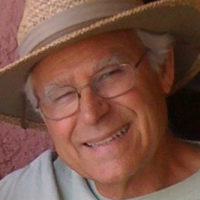
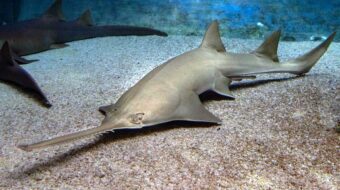
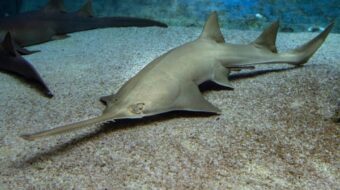
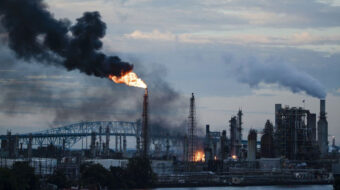
Comments